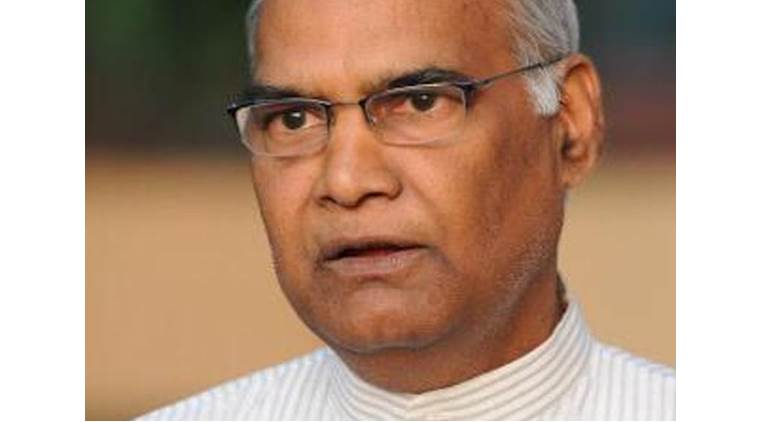Presidential games
June 20, 2017 | Expert Insights

The ruling coalition heading the government of India, National Democratic Alliance (NDA) has formally announced that its candidate for the upcoming Presidential election will be Bihar Governor Ram Nath Kovind.
The low-profile governor seems to be near lock for the confirmation and by nominating him, NDA spearheaded by Prime Minister Narendra Modi and party president Amit Shah, have displayed political acumen that is likely to leave the opposition scrambling.
Background
The first ever presidential elections in post independent India took place in 1952 when Dr Rajendra Prasad defeated his rival K. T. Shah with 507,400 votes and became the country’s first president. Since then many stalwarts including celebrated scientist, Dr APJ Adul Kalam have held the country’s highest office. From 2007 to 2012, Pratibha Patil became the first and only woman to serve as the Indian President. The current President, Pranab Mukherjee, took the office in 2012.
The next round of Presidential elections are slated to take place on July 17, 2017.
The president of India is elected by an electoral college. This constitutes of members from both houses of the parliament as well those who serve as elected members in the Legislative assemblies in all of the 29 states as well as those who are elected to the Legislative assemblies of Union Territories of Delhi and Puducherry.
And right now for all intents and purpose, it looks like the next President of India is most likely going to be Ram Nath Kovind.
A low-profile leader
Ram Nath Kovind has largely been untouched by controversies that plague most career politicians. Born in Uttar Pradesh in 1945, Kovind would go to get a Bachelor’s degree in commerce and an LLB from Kanpur University. He took the UPSC exams three times before finally cracking it but did not join civil service as he had qualified for one of the Allied Services. He however became a lawyer in the Supreme Court wherein he was the central government’s Chief Standing Counsel for multiple years.
A man hailing from the Dalit community, he has championed the cause of the oppressed community for many years both as a lawyer and during his time as the President of the BJP Dalit Morcha, an office he held from 1998 to 2002. In 1994, he won the seat and became a Rajya Sabha MP from the state of Uttar Pradesh and he served in Parliamentary Committee for Welfare of Scheduled Castes/Tribes.
In August 2015, he was appointed the Governor of Bihar.
A quiet and unassuming man, he is known to shy away from the media and the spotlight.
Analysis
Currently the NDA has around 5.37 lakh votes in the Electoral College and that is including the votes that Shiv Sena holds. For now, Shiv Sena has not shown much enthusiasm for the pick and has noted that it will announce its decision “soon.” In the 288 Maharashtra Assembly, Shiv Sena has 63 and if it refuses to go along with NDA’s nominee it risks mid-term elections as it already shared a tenuous relationship with the former.
But even with Shiv Sena’s votes, NDA will fall short of getting 11,000 votes in order to make confirmation possible. However, it seems like it has played smart politics that might likely silence its opposition. For one, because Kovind is a Dalit leader, parties risk looking like they are anti-Dalit if they oppose NDA’s pick. Additionally, leaders like Mayawati and Nitish Kumar (Chief Minister of Bihar) have just stopped short of giving their unequivocal support for NDA’s pick. Thus it makes Congress even less likely to mount a genuine challenge against NDA. And since Kovind is seen as a loyalist, RSS would have no problem championing him either.
Assessment
Kovind is a fairly non-controversial and safe pick by the NDA and by nominating they are most likely to sail through the elections on July 17. However if Shiv Sena breaks from the ranks, then it is surely likely to set a stage for political upheaval in Maharashtra. Especially if Nitish Kumar ends up endorsing NDA’s pick, then it is all but certain that the next President of India will be Ram Nath Kovind.








Comments